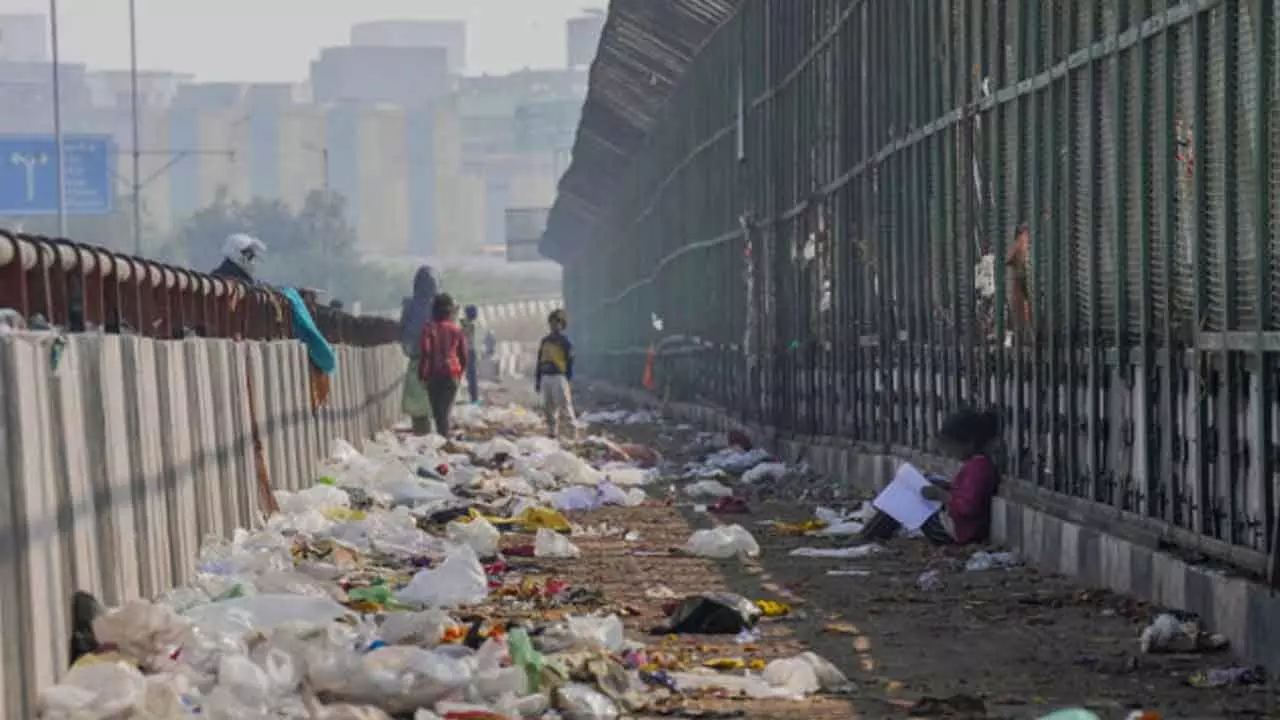Global Fight Against Plastic Pollution Faces Setback As US Withdraws Efforts
With the US rolling back environmental policies under Trump, experts warn of slowed progress in the global fight against plastic pollution and call for independent action
Global Fight Against Plastic Pollution Faces Setback As US Withdraws Efforts

US President Donald Trump's decision to reverse plastic pollution restrictions has sparked global concern, with experts fearing it could hinder international efforts to curb plastic waste
US President Donald Trump's decision to abandon efforts to curb plastic pollution has raised concerns among experts, who warn that global progress in tackling the crisis could slow down. They suggest that the world must now seek solutions without relying on the United States.
Trump, who had already withdrawn the US from the Paris Climate Agreement, signed an executive order on Monday reversing restrictions on plastic straws, declaring, "Paper straws don't work." However, the move is about more than just straws—it signals a broader setback in the global fight against plastic pollution, particularly as countries are negotiating a legally binding treaty to address the crisis.
According to the United Nations Environment Programme (UNEP), the world produces more than 430 million tonnes of plastic annually, two-thirds of which consists of short-lived products that quickly become waste, polluting oceans and even entering the human food chain. If no urgent action is taken, global plastic waste could nearly triple to 1.2 billion tonnes by 2060.
Chandrabhushan, President and CEO of the policy think tank International Forum for Environment, Sustainability, and Technology, said Trump's stance is unsurprising.
"The US under Trump will walk away from every environmental negotiation. The US is the world's largest consumer of plastic, oil, and gas. Under Trump, the progress made over the past 20 years on climate change, plastic pollution, and biodiversity conservation will be lost," he said. He added that rebuilding global trust and momentum will take at least a decade after Trump's tenure.
"The US has always been the biggest obstacle in intergovernmental negotiations, whether on climate change, biodiversity loss, or plastic pollution," Chandrabhushan said. "The world now needs to rethink multilateralism- how regions can cooperate if a global consensus is not possible. We must explore solutions to climate change and other environmental crises without relying on the US. However, if the global economy moves forward, the US cannot afford to lag behind. If everyone transitions to electric vehicles and green energy, how will the US sustain itself by selling oil?" he asked.
Harjeet Singh, climate activist and founding director of the Satat Sampada Climate Foundation, called the US decision "a gift to the fossil fuel industry and a betrayal of global efforts to curb plastic pollution."
"Despite being the largest historical contributor to fossil fuel emissions and the biggest per-capita generator of plastic waste, the US is refusing to lead, undermining plastics treaty negotiations, and fueling the expansion of petrochemicals," he said.
"This locks us into a future of more emissions, more waste, and greater environmental injustice. It is unacceptable that the US is propping up the very industry driving the climate and ecological crises," Singh said.
He urged countries to push forward with bold solutions to global crises, whether or not the US is on board.
"But as the largest historical polluter, the US has the greatest responsibility to act and pay its fair share," he added.
Suneel Pandey, Director of the Circular Economy and Waste Management Division at The Energy and Resources Institute (TERI), highlighted that most polymers come from fossil fuel-based petrochemical industries.
"The Trump administration has already signaled that oil companies will continue drilling, leading to increased oil production. Naturally, plastic production will also continue. They are not looking to reduce plastic production or consumption," he said.
However, Pandey noted that India has already moved away from plastic straws in line with its commitment to phase out single-use plastic.
"This means that the US policy shift will not impact India's initiatives," he said.

